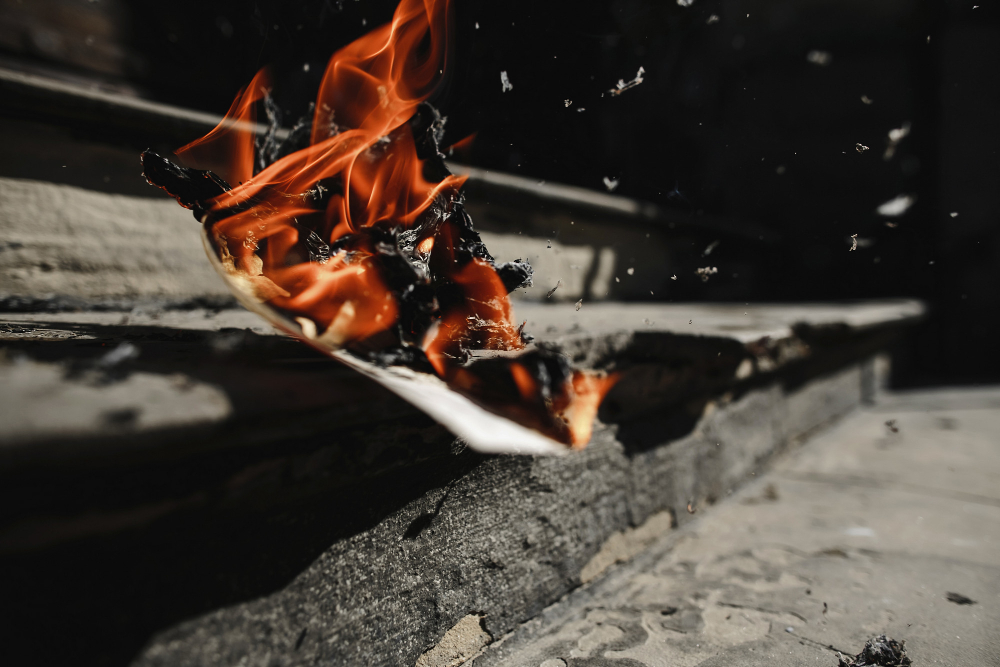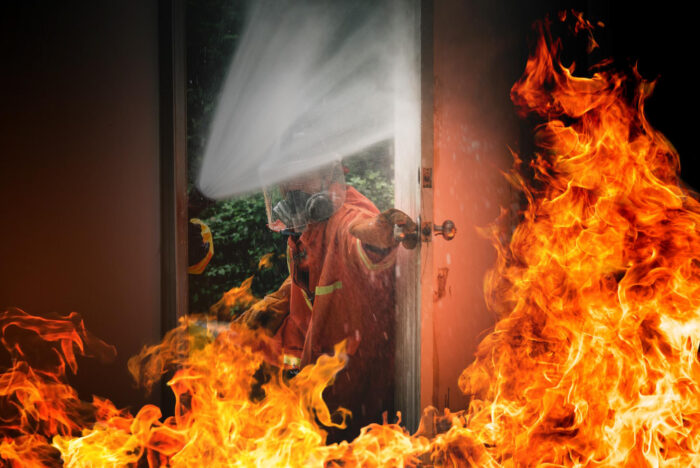
Does Homeowners Insurance Cover Fire Damage?
November 14, 2024 7:12 am Homeowners insurance is the best way to protect your property from various hazards, including fire damage. What happens, however, in case of a fire? Do homeowners insurance policies cover fire damage? What do I expect while filing a claim for fire damage? Let’s delve into how homeowners’ insurance covers fire damage, what’s covered, and how to go about filing a claim quickly.Understanding the coverage of fire damage in homeowners insurance
Many homeowner policies include coverage for fire damage. But there are subtleties attached. Fire damage is almost never out of a standard policy under dwelling and personal property.Here’s what that means in terms of coverage:
Dwelling Coverage:
Part of your policy, this dwells on the actual building of your home. If there is fire damage to walls, roofs, or garage attachments, your insurance should aid in the cost of repair or rebuild. This can deal the most devastating blow by destroying or damaging all personal property in a house – furniture, clothes, electronic appliances, etc. Personal property coverage in your policy can help pay for replacing some of these. There may be coverage limits for high-value items, though; you may want to add a personal property endorsement for full coverage.
Additional Living Expenses (ALE):
If your home becomes uninhabitable due to the fire, ALE normally covers expenses for temporary accommodations, in addition to meals and other living necessities to keep you afloat until your home is repaired.Common Causes of Fire Damage Insured
Except in rare instances, homeowners insurance covers fire damage no matter how it begins. Some common causes of fire that are typically insured:Electrical:
Caused by defective wiring, appliances or overloaded circuits.House Fires:
Grease from food or neglected cooking is often the reason.Candle Fires:
Left burning, candles cause fires.Heating Equipment Fires:
Fireplaces, space heaters, wood stoves all occasionally ignite a house fire. Some homeowner policies don’t count intentional fires, arson, or fires set by serious neglect. Review your policy for information on specific exclusions.When Fire Damage Isn’t Covered by Homeowners Insurance
Although most of the fire-related damages fall under homeowners insurance, there are scenarios where the cover is either limited or even refused to pay: Arson by the Policyholder If the homeowner himself intentionally sets fire to his own dwelling, then the policy won’t consider compensation.Vacant home:
Most policies don’t cover vacant homes. If the home is left unoccupied for too long of a period (30 to 60 days), there would be no coverage if there is a fire. You may want to carry vacant home insurance especially if you have a second home or property which is kept empty.Wildfires (in Some High-Risk Areas):
Wildfire insurance can be additional in some locations where wildfires often occur. Some firms do not offer fire damage coverage due to the risk, such as states and territories like California and often scorched regions. Owners there have to purchase separate fire insurance or additional coverage.Process on Filing Fire Damage Claim
Filing your fire damage claim can be overwhelming after an event that just seems traumatically dissimilar. Here are the steps you must follow to file the claim effectively: Call Your Insurance Company Right Away: After ensuring you are safe, dial your insurance company. They will process the rest of the procedures and may send an adjuster to inspect the damage. Document the Damage: Take photos and videos of the damage before cleaning up. Such documentation will be very helpful in showing how much you lost when you present the issue to your insurance company.Record Damage or Lost Items:
Maintain a record of damaged or destroyed personal property, showing their approximate value. If you have any receipts, keep them because it will speed up the claims processing. Working with the Insurance Adjuster The insurance adjuster will come in, inspect all the damage and determine what your insurance will pay for. You can be as open as you like and provide any documentation they may need. Likewise, it doesn’t hurt to ask the adjuster questions, such as how a valuation is calculated, or when one can expect money, etc.Consider Hiring a Public Adjuster:
Public adjusters are third-party professionals who can help ensure you receive a fair settlement. They are especially helpful if you feel the insurance company’s offer doesn’t cover enough of the fire damage.Stay Organized:
Keep all correspondence, forms, and receipts related to the claim. Keeping everything organized will prove useful if you need to negotiate with your insurance company or appeal a decision.What to Expect in a Fire Damage Claim
The timescale and payment of fire damage claim cases differ. Take into mind these considerations that may affect your case.Intensity of Damage:
The worse the destruction is, the longer it would take to measure up, restore, or rebuild your home. A kitchen fire can easily clear within a short span, but total loss will take months.The policy limits and deductibles:
The deductible defines how much of a claim you’ll have to pay before the insurance takes on responsibility. There’s also a limit of how much the insurance will pay out, usually in terms of a maximum dollar amount. Review these limits to understand how much you might receive from your claim.Actual Cash Value vs. Replacement Cost:
Some personal property insurance policies pay on an actual cash value or replacement cost basis. Replacement cost bases a claim on the dollar amount necessary to replace items with new ones, while actual cash value may be calculated on the basis of how much those items have depreciated. Call your agent to determine if your belongings will be paid on a replacement cost or actual cash value basis.Work with contractors:
Sometimes, there may be massive damage by fire, and you might need to hire some contractors for reconstruction. Insurance companies could refer you to some firms, but you are usually entitled to select your preferred contractors. Just ensure they are licensed and experienced in fire restoration.Claim Settlement:
After all of the assessments are done, the insurance company will give you a settlement upon your coverage and the report from the adjuster. Always read the settlement offer carefully and negotiate if you believe the amount offered does not cover all your damages. Bring in public adjusters or lawyers if necessary for negotiation purposes.Prevention Tips to Avoid Fire Damage
Despite the fact that homeowners insurance can protect you financially, there are things you can do to prevent fires that will save you precious hours, worry, and perhaps some things you can’t replace. Here are some general guidelines in fire prevention: Smoke Detectors must be installed in every floor; that includes the one near the sleeping areas. It should have monthly tests and the batteries must have replacements six months at a time.Practice Safe Cooking:
Stay in the room when cooking, and especially when using high heat or frying. Do not wear loose clothing that may catch fire. Prevent Heating Equipment Hazards: Place space heaters at least three feet away from combustible materials. Never leave a space heater on or unattended. Have your fireplace and chimney serviced annually.Minimize Electrical Overload:
Do not overload the outlets, and consider having the wiring inspected if you live in an old house.Be Careful with Candle Flames:
Never leave burning candles and always ensure they are away from anything flammable, such as curtains or even paper.Conclusion
Fire damage is overwhelming, but homeowners insurance can be that real pillar of relief with regard to repairs, replacement of property, and temporary living expenses. Knowing what’s covered, how to make a fire damage claim, and what to do after a fire makes an otherwise disastrous situation much easier to deal with. Review your policy periodically to come to understand what it says, and the possible ways to take preventive measures in protecting your home and loved ones. They would be better prepared with the right know-how to handle the situation if a fire occurs.for more information visit here:
CONTACT MIKE ACERRA2-https://mikeathepa.com/public-adjuster-in-san-antonio/
Categorised in: Claims FAQs, Commercial, Fire Damage, Individual Service, Insurance, Public Adjuster, Residential, Services Overview, Storm Damage, Underpaid Claims
This post was written by Trishala Tiwari

Comments are closed here.